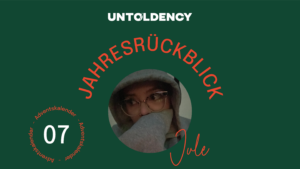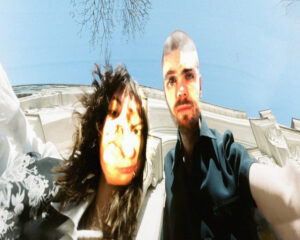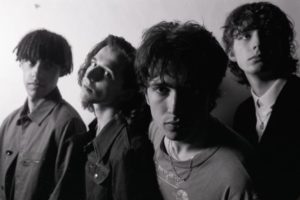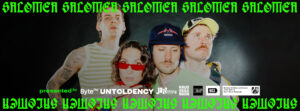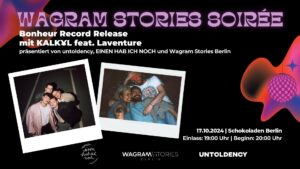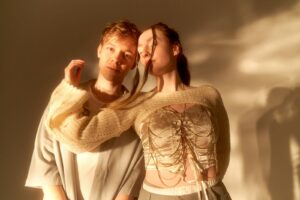Mother Mother schlägt ein neues Kapitel auf: Grief Chapter ist das neunte Album der kanadischen Band. Seit weit mehr als zehn Jahren ist die Band nun schon gemeinsam unterwegs und überzeugt wie gewohnt mit einer wunderbaren Kollektion an Songs. Irgendwo zwischen schnellen, explosiven Rocksongs, ruhigen, vor allem stimmlich getragenen Songs und Lyrics, die auch nach dem Hören bleiben, ist ein Album entstanden, das sich mit Trauer und Tod beschäftigt – aber nicht auf eine traurige Art und Weise. Mehr in einer Art, die alle Emotionen begrüßt und für sie Platz macht. Im Rahmen ihrer Welttournee konnten wir mit dem Sänger der Band, Ryan Guldemond, sprechen und einen Einblick in dieses neue Kapitel erhalten.
Ryan Guldemond im Interview
Johanna (untoldency): Hello! You’re in Berlin since today probably. How is touring so far? Are you enjoying it?
Ryan Guldemond:I love touring. Yeah, it’s a harder lifestyle, but I think that makes for a happier temperament. I think challenge is good for us, us people. So I like to struggle and I like the diversity. I like being exposed to different cultures. And of course, that energy, that medicine of human connection that we get every night during the show is really special.
Johanna (untoldency): You’re touring – not only, but probably mostly – the recent album Grief Chapter, and it’s an album about death and grief. And there are still songs on there which were you explaining how to fully experience life, how to live fully, how you don’t conform to any images others have of you in your mind. So would you say those are two sides of the same coin, or where would death and grief and living life meet for you?
Ryan Guldemond: I think they’re two words for the same thing. It’s like light and dark. We need light to expose the shadow. We need shadows to consume the light. And I think the more you investigate death, the more mysterious it becomes. And the lesson in how to live only becomes more clear the closer you get to death. So I think that’s what death is here for, is to help us live.
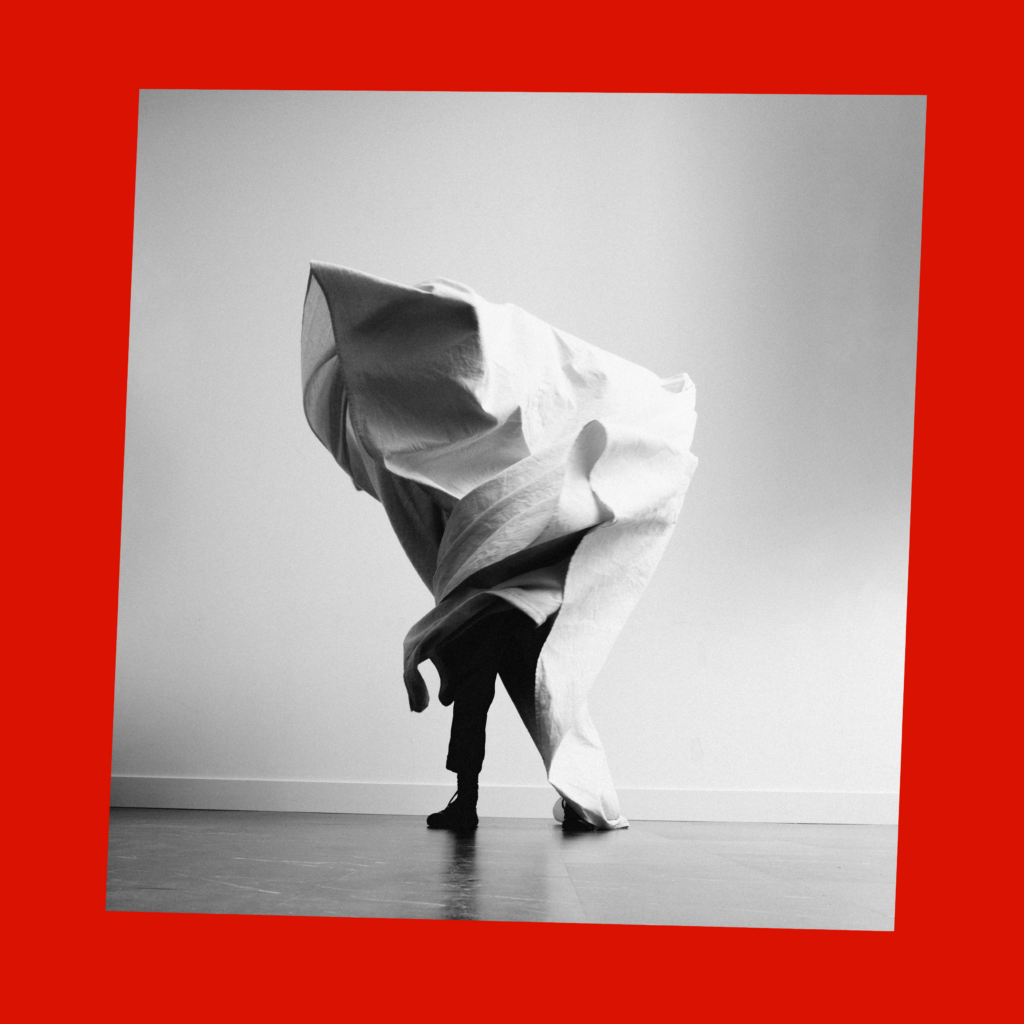
Johanna (untoldency): Yeah. That’s true. Grief is usually not only a chapter, though. I would say many people experience grief for a way longer time than just that chapter. So how come that you called the album grief chapter?
Ryan Guldemond: Well, a life is a chapter.
Johanna (untoldency): Only one chapter?
Ryan Guldemond: I guess it depends what you believe. I believe in the mystery. I believe in not knowing and in not knowing the freedom to be curious. But Grief Chapter the album is about life as a chapter. So every day we grieve the death of a day. A page from the book of a life.
Johanna (untoldency): Yeah, I haven’t thought about it that way, but I like the thought. And would you say it’s musically as well a chapter for itself? Or more like a chapter in the whole discography of yours?
Ryan Guldemond: I think every album musically, thematically is a representation of where the band was at during that time, and it becomes less about doing something amazing and more about doing something true to that time.
Johanna (untoldency): I get that. Still in the chapter theme: there are different stages of grief in general. Like some would say five, some would say seven. First you have anger, then you’re sad, followed by the other ones. Do you feel like those are displayed in the album as well?
Ryan Guldemond: No, we did not intend to model the quintessential stages of grief. It was more abstract than that. I couldn’t even list you those stages of grief. I know… Anger, denial, all that stuff. Yeah, it’s got to be in there. I’m sure it’s all in the record, but I didn’t intentionally write it that way.
“But what we do is we project the past and the future onto the moment and we pollute the moment.”
Johanna (untoldency): For me personally two tracks of the album stood out. One of them was Explode. I think that was the third track on the album, because I feel like it was just suiting me. I’m very often living that kind of way, and I know many people who are as well, like doing too much at some point because they want to get everything out of life. I mean, I think you said those things as well. So what is your life advice for people who relate to that?
Ryan Guldemond: I think your life is always the present moment. And it’s good to remember that. Like, my life is not what I’ve done or what I’m going to do. My life is sitting here with you, having this conversation. That is my life right now. And when I ask myself, is there anything wrong with my life right now? No, this is pleasant. My leg is not on fire. Everything is okay. Typically, everything is okay in the moment. Um, for most people. But what we do with our brains is we project the past and the future onto the moment, and we pollute the moment. And we falsely label our lives as having something wrong with them, when in fact, most of the time it’s perfectly fine because the moment is usually unburdened.

Mit dem Laden des Videos akzeptieren Sie die Datenschutzerklärung von YouTube.
Mehr erfahren
Johanna (untoldency): Was that a lesson you’ve learned over time, or was it just clear and simple?
Ryan Guldemond: I’m still learning how to not ruin my own life with my own mind. And I fail every day. And I forget every day. But every time you fail and you forget, it’s a wake up call to remember and to try again.
Fuck no to living in the matrix
Johanna (untoldency): Wake up was actually a good word, because the other song which stood out to me was The Matrix. And there’s this line which goes “fuck no to living in the matrix”, I think. So what would be the Matrix for you? Have you thought about that? Like, what are you saying no to with this line?
Ryan Guldemond: Maybe it’s a script that someone else wrote besides you. So following someone else’s orders, as opposed to the orders of your truth, or your heart or your soul. It doesn’t have to be a 9 to 5 job. It doesn’t have to be the system or society. Yeah, it can just be every time you fall out of step with your authenticity. That’s when you fall into the matrix. Not a good thing.

Mit dem Laden des Videos akzeptieren Sie die Datenschutzerklärung von YouTube.
Mehr erfahren
Johanna (untoldency): And we want to say no to that.
One of your biggest hit songs was Hayloft. It’s gone viral 12 years after its release. If you could pick one song of the current album, Grief Chapter, to become your next hit – which would that be?
Ryan Guldemond: Grief chapter. The song. I think it’s a really beautiful thing when a slow and deep song becomes a hit. It’s rare, but when it happens, it’s powerful. Because you know that everyone is attaching to it, not for surface reasons. They’re connecting to a deeper emotion, and it’s moving a lot of people on that level, which I think is a really healthy thing.
Ryan on his songwriting: “So for me I try to just model creativity in life”
Johanna (untoldency): Okay. Yeah. Maybe that’s going to be the next hit. Let’s see. In general you’re songwriting is quite raw and vulnerable I’d say. It’s really honest and people are connecting with it. I mean, you probably recognize that the most, but what is the hardest thing in that process? Like is it hard for you to open up or which step exactly is hard to get those songs as they are?
Ryan Guldemond: I mean it’s hard to live your life, generally in a way that keeps your vulnerability open and your channel open to receive these lyrics and these messages in creativity. So it’s less about sitting down and writing a song with that intention. It’s more about how you wake up, how you move through the day, how you exist in the world, which either supports or works against the creative process. So for me, I try to just model creativity in life. How I look at a tree. How I walk down the street. How I talk to my mom. And if I’m doing that successfully for most of the day, every day, then when I sit down to write, it’ll just arrive because I’m open, because I’m honoring life in a way that supports creativity. And when I tune out and distract myself with nonsense, then songwriting becomes very hard.
Johanna (untoldency): If you’re saying at the end of the day you’re sitting down, is it like writing a diary entry for you? Or was it more metaphorically meant?
Ryan Guldemond: It feels like being visited by a force who feels safe enough to make a connection because you’ve been proving to that force that you’re sensitive enough to communicate with it. And if you just bulldoze your way through your life and you have your blinders on and you’re down the rabbit hole of the internet or sedating yourself with, you know, sugar and indulging in conflict and gossip, then that beautiful, creative, pure energy doesn’t want to get close to you. It’s dangerous. It’s not a safe space, so it stays far away. And guess what? No songs come. So it definitely feels like you’re in collaboration with an energy outside of yourself.
“It’s like there’s two lives – one where I’m not writing a song and it feels like I kind of might as well not even be here.”
Johanna (untoldency): Which was the hardest song to write for the album, or was there even a hardest one?
Ryan Guldemond: Yeah, there was. Normalize. It began in a really clear and open way. But then I got too involved. I think my brain got too involved. And I pushed it around and forced a theme and an arrangement that I think was different from what the spirit of the song just wanted to be.

Mit dem Laden des Videos akzeptieren Sie die Datenschutzerklärung von YouTube.
Mehr erfahren
Johanna (untoldency): You’re doing all of the songwriting for Mother Mother. What’s the process of showing the songs to the rest of the band? Like, because I’ve shared some of the songs to friends of mine and they were like, are you okay? Let’s go have a cup of tea and talk about something. Do you want to share something? And, I mean, I’m just sending it to them because they know those are not my words, obviously. So what is it inside the band?
Ryan Guldemond: Well, yeah, I mean, I never offer cries for help, and so the band knows not to take my songs as that. They know it’s very practical for me. I’m showing them a song because I’m wanting to test its merit, and I want to know if they think it’s a viable song for our project. And even if the lyrics are really distressing, they never assume that that means I’m doing poorly because it doesn’t.
I’m like the more distressing the lyric is, the better I’m doing. Because that means I’m open. I’m connecting to the deep well of emotion, and that’s when I’m happiest, even if what I’m touching is a really disturbing or sad energy.
Johanna (untoldency): But I mean, it’s probably helping as well with coping.
Ryan Guldemond: Always. It’s like there’s two lives – one where I’m not writing a song and it feels like I kind of might as well not even be here. Everything’s kind of gray and pointless.
And then there’s the life when I’m writing a song and I’m inside of that song. Like In the womb and the world is bursting with color and meaning and beauty.
“Much of that is because of this amazing fan base that found us and took us in and celebrated the parts of the band that were most authentic.”
Johanna (untoldency): That sounds beautiful. As I’ve mentioned Hayloft before, that was 12 years ago. You’ve been at it – like musical staff, songwriting, touring – way more than ten years. Way more than a decade. So has it changed for you – putting out music, playing live? I mean, of course the industry has changed or even society, but like, how are you feeling doing it? Has that changed?
Ryan Guldemond: Yeah, it’s great now. It was really exciting at the very beginning because you’re so naive and you’re fresh to the world of music, and the industry seems exciting and inviting. And then you get inside of the beast and the machine, and there’s lots to scare you and there’s lots to confuse you. And so I think we spent some years in that middle stage of development. Like an awkward puberty, let’s say. And now we’re on the other side, and we know who we are. We know what we’re trying to get out of this and what we’re trying to give to it. And it’s all very pure and of good intentions. So we’re just able to not even think about stuff that used to bother us. It’s a very wholesome, clear space that we’re in. And much of that is because of this amazing fan base that found us and took us in and celebrated the parts of the band that were most authentic. The strangeness, the quirkiness, the stuff that the industry told us to double down.
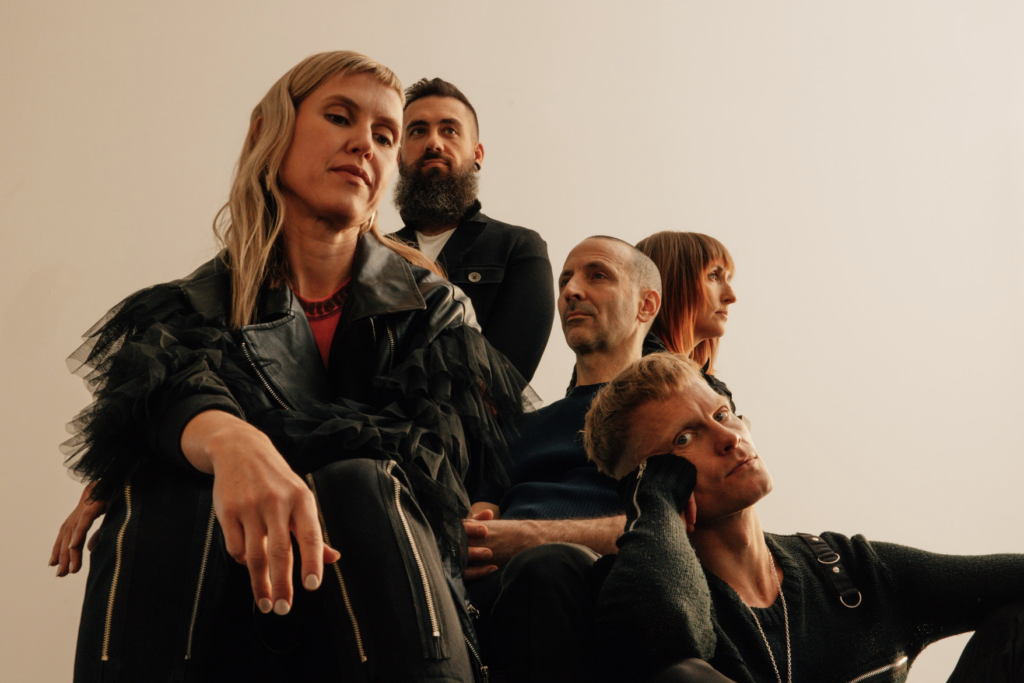
“There’s this sort of cycle of energy that starts to swirl in a show, and you just kind of like, throw yourself into it and get swept away and you get made better as a person.”
Johanna (untoldency): I’ve been at one of your concerts back in 2022. One of them here in Berlin, and I feel like the fanbase is such a strong thing. That is what comes out the most at the concert. The energy you bring onstage, the fans, they’re so deeply connecting to what you’re doing on stage and what you’re singing and saying.
Ryan Guldemond: Yeah, it’s beautiful. There’s this sort of cycle of energy that starts to swirl in a show, and you just kind of like, throw yourself into it and get swept away and you get made better as a person. That’s how we feel after our shows, and it feels like we’re just five people of a much larger ensemble that is giving a performance that night.
“Life is too serious to take it seriously.”
Johanna (untoldency): That’s cute. In general – what came out at your concerts as well, I feel like is… The topics in your songs are quite serious topics sometimes, but there’s a certain humorous way you’re going about it. Do you feel like that’s the key to life? Like feeling the stuff but not taking it too seriously?
Ryan Guldemond: Yeah, I think there’s an expression. Life is too serious to take seriously [Johanna laughs silently] and see, it makes the person laugh because they understand immediately. It’s like the universe is always offering a cosmic giggle, because this world is built on paradox and opposites, and we get so tortured by one end of the spectrum when we stop to remember that it’s totally intertwined with its very opposite, and therefore everything is in balance. You have to laugh. So I certainly love humor. I especially like irreverent humor and dark humor. You know, I think it’s very fun and it allows a person not to take things so seriously or piously. I think people can get a little too sanctimonious about… I don’t know, life and the moral spectrum, and it’s fun to mess around with that a little bit in songwriting.
Johanna (untoldency): I get that. We’ve been on the topic live quite a few times now. You’re on tour right now. What is your favorite memory of this tour so far?

Ryan Guldemond: I went for a photo walk in Milan and the venue was in this very industrial neighborhood. But I found this really beautiful, idyllic park and these great trees and this expansive field. And there was this guy, taking a break, sitting beside his bicycle on the grass. And I was just like taking his picture and vibing out with him. Those kinds of memories I really keep close. Like going for walks and connecting to something and using my camera to immortalize the experience.
“We’re looking for problems inside of our mind, as opposed to looking for like the way a cloud cuts across like some telephone wires”
Johanna (untoldency): I mean, there’s probably not too much time for that, is it? So just consciously taking the time to do that is probably the most important thing.
Ryan Guldemond: Every day I do it. Yeah, I have to. You can go for a 20 minute walk and change your life – if you’re open to be moved. And I find the camera is such a great way to motivate you to look for beauty. It’s a different experience going for a walk with the only motivation of trying to find something beautiful. When we go for walks, typically we just think about our lives and all the problems we’re looking for. We’re looking for problems inside of our mind, as opposed to looking for like, I don’t know. The way a cloud cuts across like some telephone wires or, you know, a guy sitting in a field. So for me, it’s activities like that that keeps me sane, but also childlike and joyful on tour. And it gives me an escape route out of the tunnel of routine and structure.
Johanna (untoldency): Is it a real camera or are you taking the photos of your phone?
Ryan Guldemond: Real camera, Yeah. I have like an old, vintage lens. And it forces you to do manual focus, so you can’t just go click, click. You have to sit and work with the image so it enforces patience, which also feels good. Yeah, it’s better.
“It’s like we’re so bored by the idea of conflict or interpersonal drama.”
Johanna (untoldency): Yeah, I get that. I’ve recently discovered my digital camera again and it’s so much more fun than with the phone.
But back to tour – you’re not alone on tour. There is a whole crew and the rest of the band. Would you say you as a band have different roles while touring? Like one of you is the dad of the group and one …
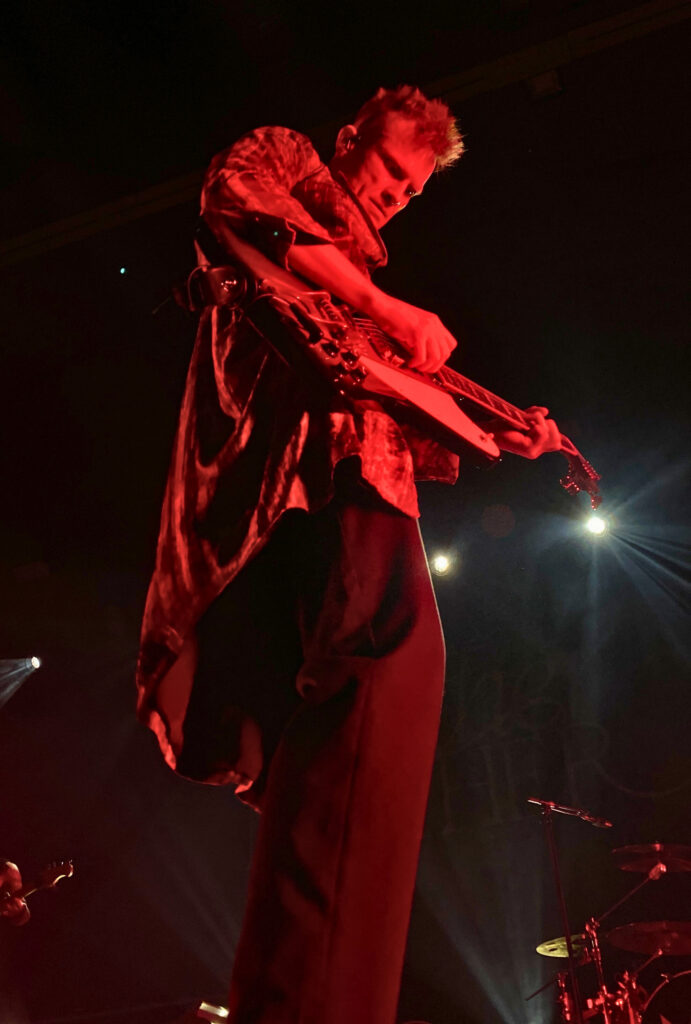
Ryan Guldemond: Not really. We’re all very self-contained and responsible for ourselves. And I think people have different personalities. Like, some people are more funny than others. I’m a bit of a tease, like a jokester. And Molly – my sister – is really comical. She can kind of be fastidious and worried. And it’s funny, you know, she kind of becomes a cartoon character. And we all do, right? Like people in your family, everyone kind of becomes a parody of themselves.
Yeah, but everyone in the band is lovely. I think we all feel really lucky how easy it is to exist together. We’ve been through it all. It’s like we’re so bored by the idea of conflict or interpersonal drama. Like nothing could interest us less. Yeah. That’s nice.
“It’s like Carpe diem. And the cosmic giggle.”
Johanna (untoldency): Yeah, that’s a good thing. We actually have two closing questions left now. The first one: if someone meets you who doesn’t know Mother Mother or Grief Chapter yet, how would you describe it briefly to them?
Ryan Guldemond: It’s like Carpe diem. And the cosmic giggle.
Johanna (untoldency): Okay, then the last one. Our magazine is called untoldency and we have this thing at the end of each interview to ask people to tell an untold story. Maybe there’s a special story you’d like to share which you haven’t told.
Ryan Guldemond: That is. I mean, maybe I haven’t told my untold stories for a reason.
Johanna (untoldency): That’s true.
Ryan Guldemond: I feel like most good stories you tell. I really can’t think of an untold story. Does everyone give an answer?
Johanna (untoldency): I mean, one artist once told me he accidentally stole something out of one of those candy shops. Where you can buy a chocolate bar for 1€. And he just forgot to pay and he took it. Then when he was home, he realized that he actually didn’t pay.
Ryan Guldemond: I did that on this tour and I don’t think I’ve told anyone. Yeah. It was – you know the little prince? There was a keychain and everyone says I look like the little Prince. Because of the blond hair. And they like to infantalize me, like my family, Molly. “Oh, you’re just a little prince”. So I saw this keychain at a gift shop on a ferry crossing the English Channel. And a couple of days later, there’s something in my pocket, and there it was. And I never paid.
I stole the other person’s story. Is that okay?
Johanna (untoldency): Yeah. That’s fine. I mean. Untold is untold. And it’s not stealing if you’re just experiencing the same.
Ryan Guldemond: Untold is untold.
Johanna (untoldency): Exactly. And actually, one last, last question, but that’s fine if you don’t have an answer for that. I just wanted to ask if you want to share something else, like if you feel something’s missing. If there’s a question left which I didn’t ask, but you’d like to answer.
Ryan Guldemond: Oh, probably not, but maybe I’ll just express extreme gratitude. To those who are reading and taking interest in Mother Mother. And if they listen, we hope that they enjoy. Nice. Yeah. End on a nice, polite note, like good manners is important.
Johanna (untoldency): That’s true. So thank you for taking the time.
Ryan Guldemond: Thank you very much.
“It’s like carpe diem and the cosmic giggle” – wenn ihr jetzt hören wollt, wie das klingt, könnt ihr das hier tun:
Klicken Sie auf den unteren Button, um den Inhalt von Spotify zu laden.


